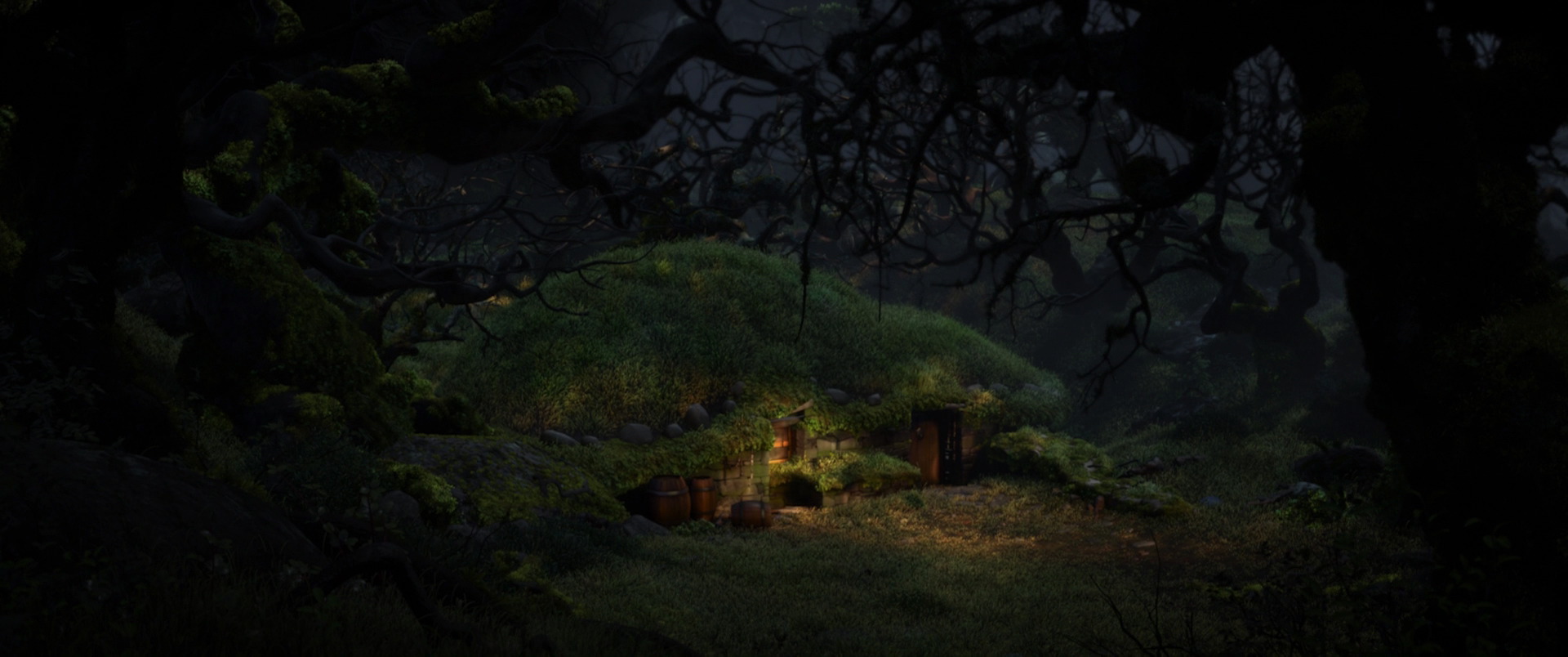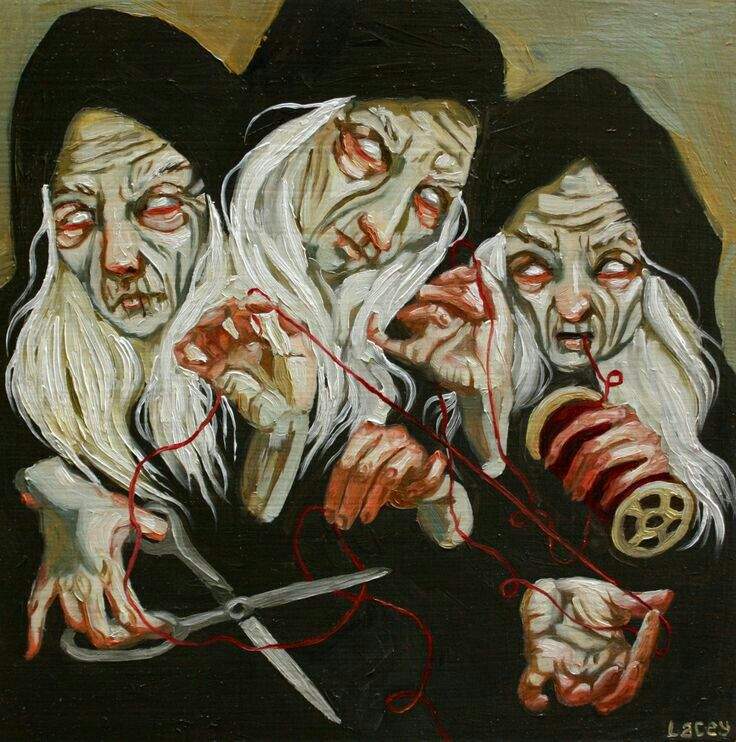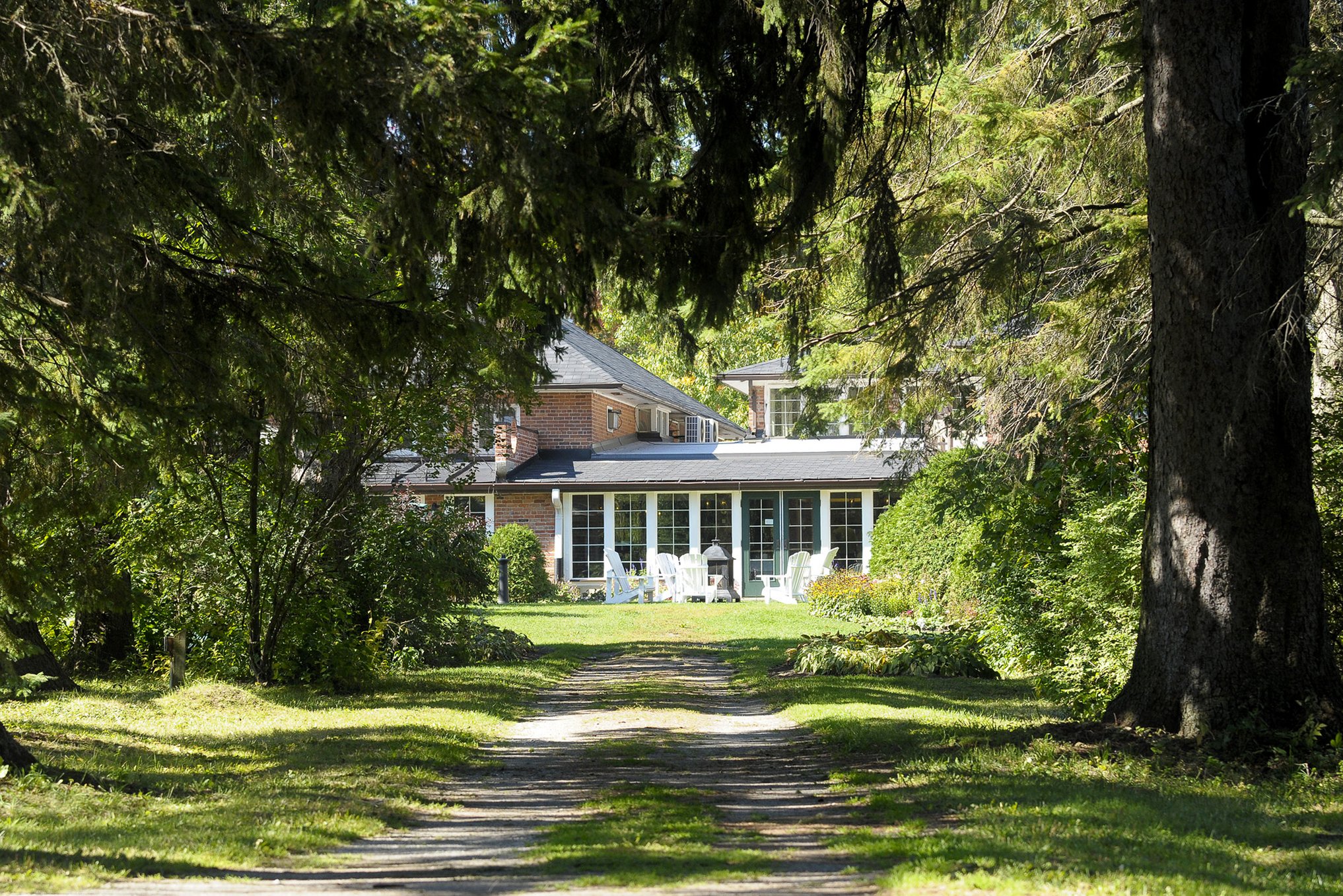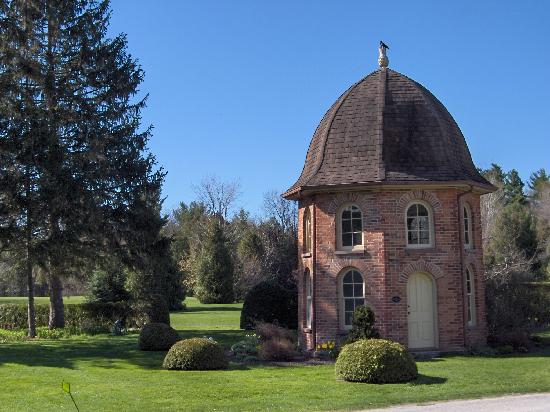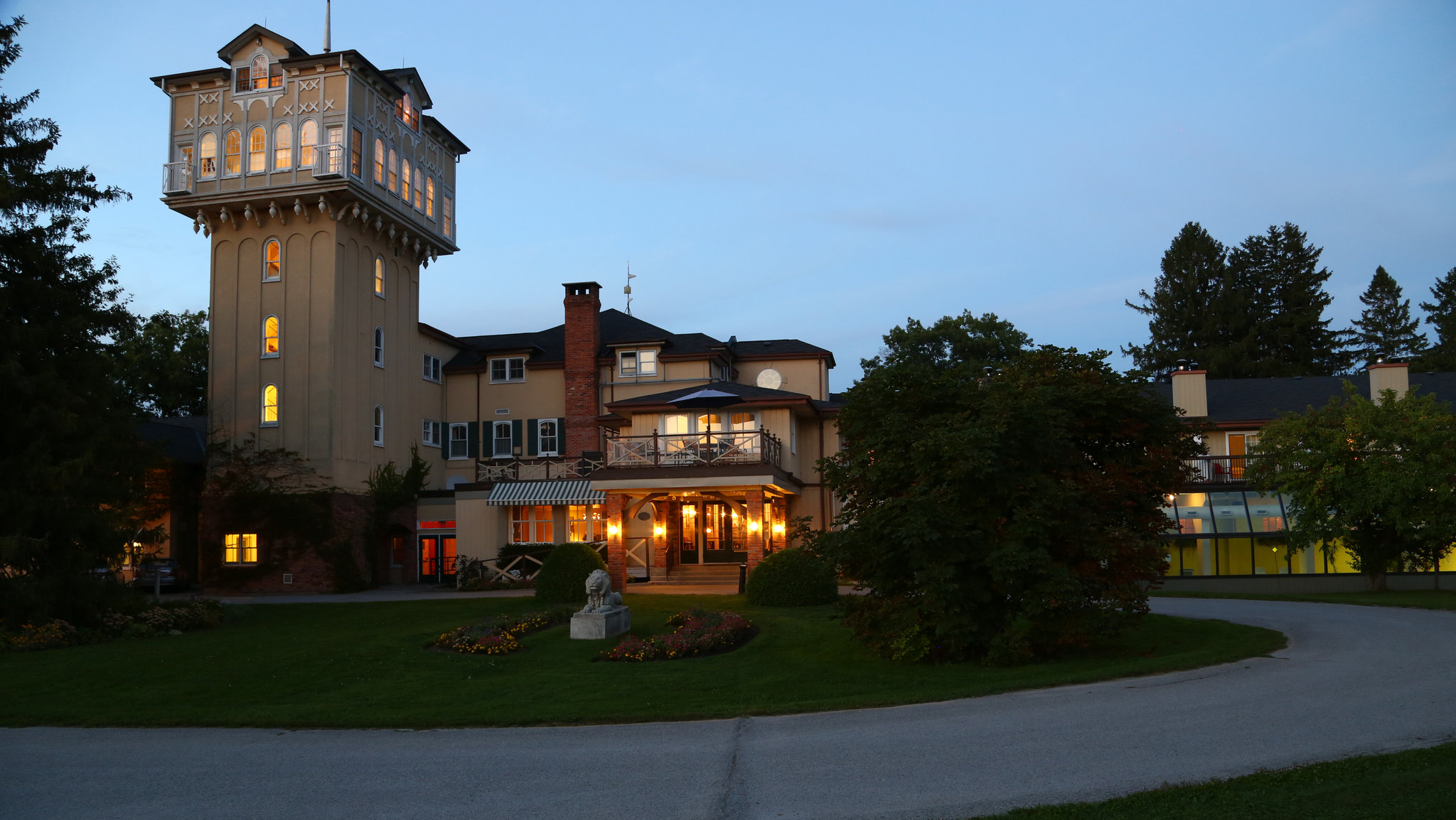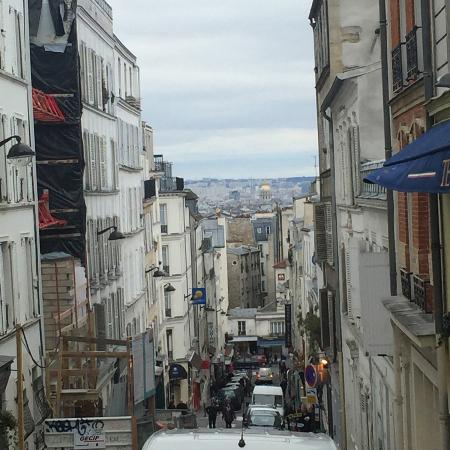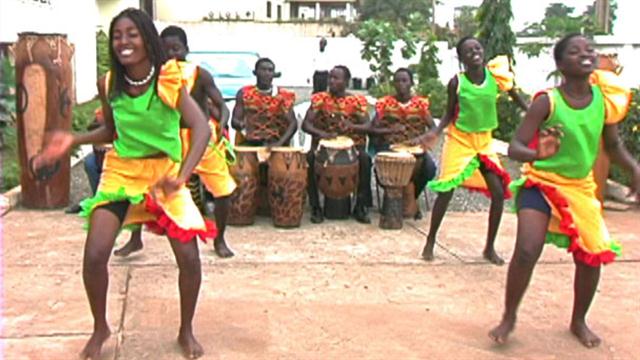The click, click of
the knitting needles was the only sound I heard, the user unseen, a
shapeless form buried in the shadows. “Would you like some light?” I asked and looked around for a candle or lantern.
Silence
from the figure, only the movement of sharpened needles gleaming in the
firelight, a tangle of yarn lay at its feet.
“Well...” I
glanced around the room into which I found myself an intruder. The noise of the
moors behind me. A plaintive wail of wind and percussive rain beat at the
windows, seeking to gain entry. I, myself a lone traveller, stood there,
still dripping from the storm.
When the door swung open and I stepped inside, I'd expected a rough cottage, but nothing had prepared
me for a sight such as this. Not a sweet tidy grandmum’s cozy home, but a crude
shack; all manner of thorny implements hanging from the ceilings, blackened
pots and sharpened tools hung together suspended from beams that
looked like they were bones from some giant creature. Metal and wood jostled, clanging,
as I brushed by. Heaps of garments lay strewn upon the floor, the odour of
disuse filled the air, and as I drew breath, I was tempted to open a window
against the stench of decay.
My host sat silent in the corner occupied in her busywork – at least I supposed her to be a her. by her side, murky flames leapt from a dank fire, eating at the blackened stonework.
“Well,” I
said again, “this is some night.”
Still
silence from the creature. In the leaping light of the fire, my host seemed to have heaps
of clothes wrapped around her, a pile of garments that
seemed to have no beginning or end. But the knitting needles protruded from the
mass, clacking away and twining tangled
threads, as though with a life of their own.
“Would you
mind if I stayed, just for the night?”
Silence
from the creature, and I eased myself to the hard-dirt
floor, my haversack beside me. Camping in the rough was to be expected on a
journey such as mine, and I soon accustomed myself to the filthy floor.
“I would
like to stay for the night, if I may,” I tried again. “I can pay
you for your hospitality.” I jangled a purse full of coins, which the creature steadfastly ignored, so occupied she was with her knitting.
“What are
you making?” I asked.
“You.
Making,” the creature croaked, in a rusty voice full of disuse. I was so
surprised by the fact of reply I nearly fell back on the floor.
“I beg
your pardon?” I said.
“Ends
soon.”
“The
storm? It will end soon?”
“It ends.”
The
creature fell back into silence; click, click of knitting needles the only
sound heard above the storm outside.
I sat watching my host knitting, boney fingers barely distinguishable from the
needles themselves, her face, as caught in the firelight, a grim mask of
bone, with a thin skein of flesh stretched across. An
old crone, I thought, gone mad and living alone in the wilds.
Realizing
my host might need care herself, I sat up. “Can I offer you some food?” I
opened my pack and began rifling through it . “I have some biscuits, perhaps –”
The figure seized me with a look so hideous that I broke off, suddenly unsure of my own intention.
The figure seized me with a look so hideous that I broke off, suddenly unsure of my own intention.
Silence
stretched between us as the storm continued outside, a weary call of all things
left to the night. Rain spattered against the thatched roof, and a dampness
crept in to my bones. I shifted my position on the floor, aching, and sought
comfort in thinking about more pleasant times and situations of my own life.
Familiar voices and faces filled my mind, and soon lost in thought, I was
startled by the creature’s abrupt announcement.
“It is
done.”
“Pardon?”
“It is
done.”
The figure
held out a gnarled hand, and stopped me with a mere gesture.
Now, fully
trembling with fright and realization, I watched as the figure cut the final
line to the tattered piece of work, the thin thread falling lifeless, now on
its own.
As though
bound to the cloth itself, I too fell to the floor, gazing upward in the dim
firelight at the work the figure now held admiringly. Flashes of my own life
rushed before me: childhood, family, friendship, and beyond – all leading to my
adventures here.
The piece
fell to the floor beside me, and as I gasped my last breath, I perceived the
creature pick up another skein of wool, and begin casting anew.
***
Liz McAdams is a short, sharp
writer living in the wilds of Canada, with her black cats and her laptop. Her
work appears in places such as Shotgun Honey, Yellow Mama, Near to the Knuckle
and The Horror Zine. You can contact Liz through her blog here.
See Brian Henry’s schedule here, including writing workshops, weekly writing classes, and weekend retreats in, Bolton, Barrie, Brampton, Burlington, Caledon, Collingwood, Cambridge, Georgetown, Georgina, Guelph, Hamilton, Jackson’s Point, Kingston, Kitchener-Waterloo, London, Midland, Mississauga, Oakville, Ottawa, Peterborough, St. Catharines, Saint John, NB, Sudbury, Toronto, Windsor, Woodstock, Halton, Muskoka, Peel, Simcoe, York Region, the GTA, Ontario and beyond.

